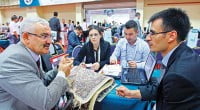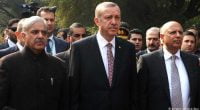As you read this, a rapid and turbulent revolution is underway in Turkey. The country’s ruling Justice and Development (AK) Party is pushing proposals through parliament that would radically alter the system of government.
By abolishing Turkey’s long-established system of collective cabinet government, the AK Party says it will stabilise the country and streamline decision-making. But the proposed law will pool power in the hands of the president and dramatically reduce the top job’s accountability to parliament. In effect, it codifies a system of one-man rule for Recep Tayyip Erdoğan.
Mr Gül keeps very quiet. Such is the extent of the crackdown following last July’s coup attempt, and the environment of fear and intimidation, that not even an ex-president is willing to speak out. Mr Gül told an audience at London’s Chatham House in November 2014. “To be able to have that sort of a presidential regime, you need to check everything. You need to have your balances in the right place.”
It wipes out the century-old role of prime minister and transfers its functions to the president. It strips Turkish MPs of their duty to scrutinise the executive and abolishes the vote of confidence needed for governments to take office. It grants the presidency new powers to directly appoint a vast range of public officials – cabinet ministers, provincial governors, and judges to the highest courts in the land.
Simply put, the government’s plans are an enabling act: they are designed to strengthen the individual over the collective. Powers and duties that are presently distributed among the prime minister, the cabinet and senior judges are being rerouted to one man.
Rushed through Parliament
The AK Party says the proposed law will equip a strong leader to generate the stability that people in Turkey crave. This month Deputy Prime Minister Mehmet Şimşek said his administration wants to abolish Turkey’s “two-headed” political model that causes paralysis if the president and prime minister ever disagree.
The proposed constitutional change grants the presidency new powers to directly appoint a vast range of public officials – cabinet ministers, provincial governors, and judges to the highest courts in the land. Simply put, the government’s plans are an enabling act: they are designed to strengthen the individual over the collective. Erdogan could squeeze out a victory in April’s referendum. That result would strip away the few powers that keep him in check. For Turkey’s massive, disenchanted minority, that result would leave no hope.
That message has a powerful appeal for a country like Turkey, which has been rocked by political turmoil, the need to care for millions of Syrian refugees, and repeated terror attacks that have killed one person on average for each day of the last 18 months. But it is difficult to argue the system is not being tailored specifically for Mr Erdoğan himself, not least because it eliminates the few remaining checks on his power.
AK Party officials have made much of their proposal’s 9th article, which makes the presidency liable for prosecution for the first time. They correctly point out Turkish presidents can only face trial on suspicion of treason and that they were proposing to make the office holder liable for any offence.
But an investigation into suspected wrongdoing would take much, much longer than before. Under the present rules, the process for MPs to investigate and topple a government minister takes 18 days. Under the AK Party’s proposals, it would take up to 10 months.
By contrast, Parliament is making great haste with the reforms, burning the midnight oil for seven nights in row last week to debate measures that would strip away their own powers. Such breakneck speed makes the proposals all the more bewildering.
A climate of intimidation
The government party is a few seats short of the 330 votes needed to put their proposals to a public referendum. The leader of the MHP, a small far-right party, has promised to provide the numbers to help them over the line. But an executive presidency for Mr Erdoğan is deeply unpopular among the MHP’s extensive grassroots network and its MPs are under immense pressure to oppose it. There have been reports of MPs being intimidated, with whips deploying tactics like man-to-man marking and videoing the voting booths to flush out any rebels among AK Party and MHP lawmakers.
That might explain why the AK Party leadership is pushing the proposals through parliament as quickly as it can. But it is not just the MHP’s grassroots that are disgruntled.
Many of Mr Erdoğan’s former comrades-in-arms – like his predecessor as president, Abdullah Gül – are opposed to an executive presidency. “Everyone knows that I see a parliamentary system as a better, more suitable system,” Mr Gül told an audience at London’s Chatham House in November 2014. “To be able to have that sort of a presidential regime, you need to check everything. You need to have your balances in the right place.”
But these days, Mr Gül keeps very quiet. Such is the extent of the crackdown following last July’s coup attempt, and the environment of fear and intimidation, that not even an ex-president is willing to speak out.
Loved by one half and loathed by the other, Mr Erdoğan is the country’s most divisive politician. He could squeeze out a victory in April’s referendum. That result would strip away the few powers that keep him in check. For Turkey’s massive, disenchanted minority, that result would leave no hope.
Michael Daventry is a Turkish journalist based in London and editor of the Turkish community newspaper Haber.

























